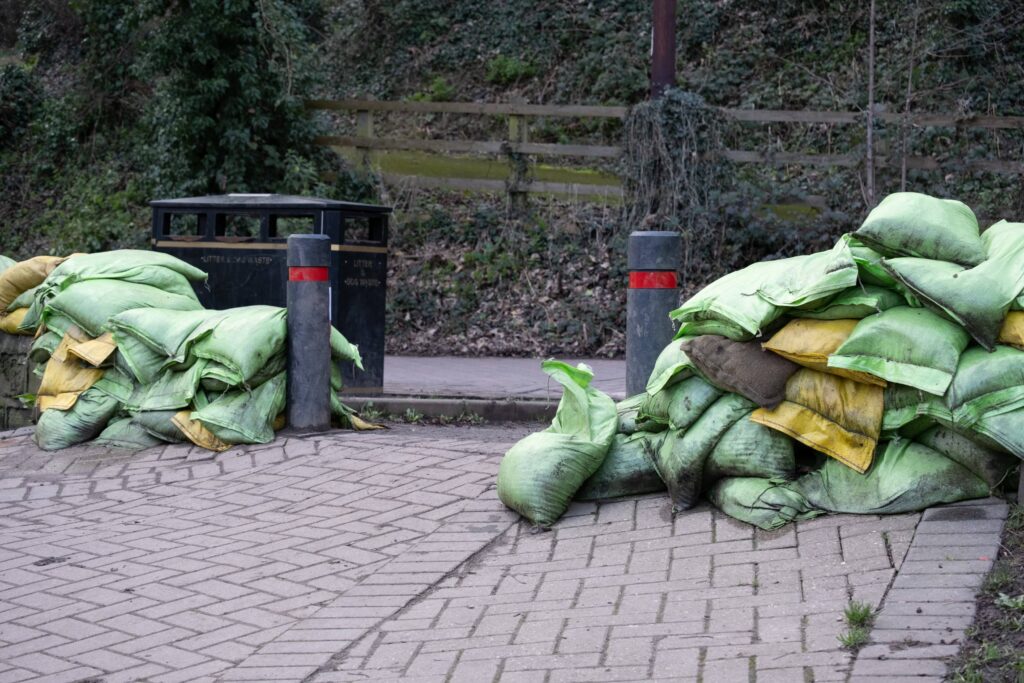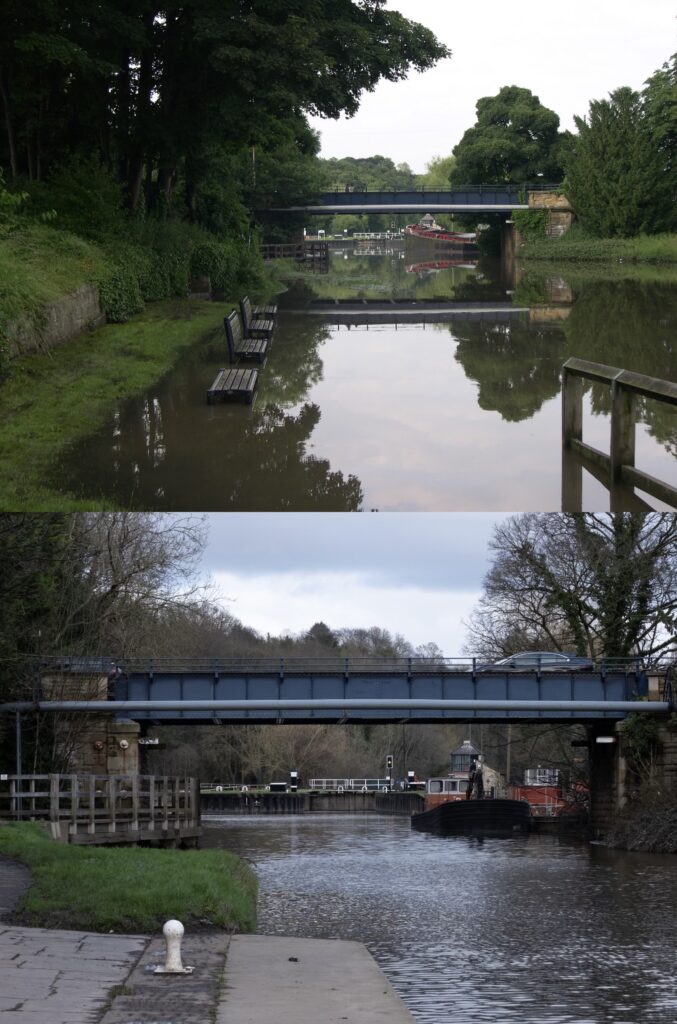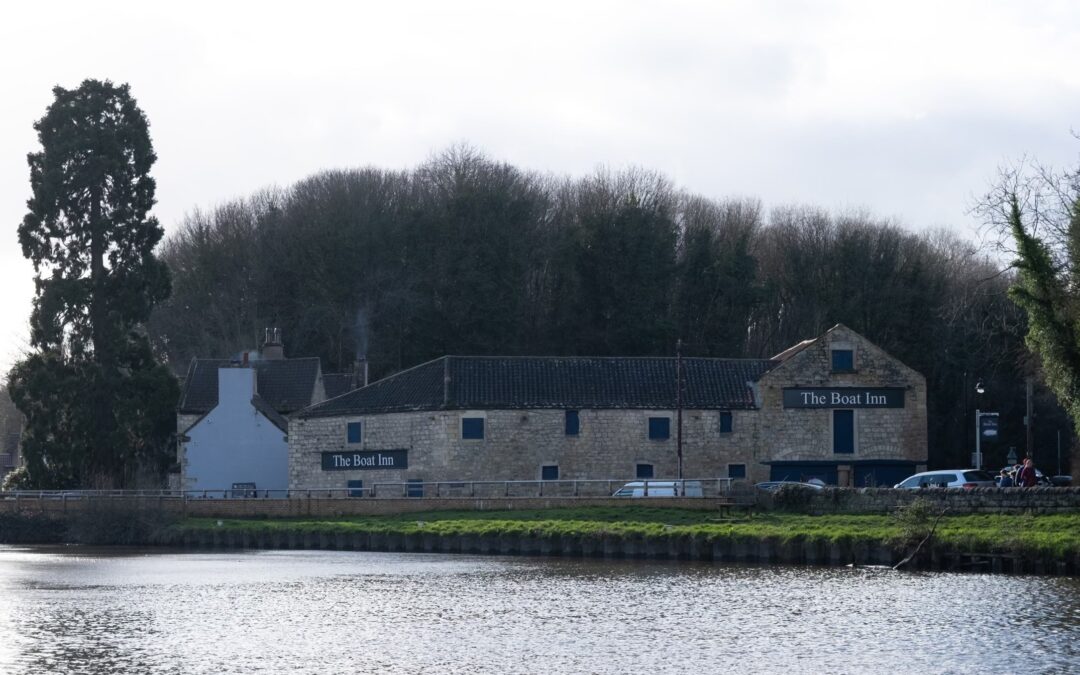The reopening of a picturesque Doncaster pub last week, following extensive flood damage, has left locals questioning what exactly is being done to invest into the area’s environmental defences.
The Boat Inn, in Sprotbrough, welcomed back customers after being forced to close last October due to damage caused by Storm Babet.
It is the second time licensee, Felicity Bell, has been left with no choice but to temporarily shut the 17th century pub. It was previously closed for 18 months after heavy rainfall in 2019 preceded the COVID-19 pandemic. On 8 November, recorders across the city confirmed the Don’s level at all-time highs.
“It was around half past one in the morning when the Environment Agency told us the flood alert for the area was upgraded to red,” she said. “Within 20 minutes, most of the lower pub was ankle-deep in water.”
Following the first lockdown, the pub was ready to re-open after carrying out dry runs with family and friends. Announcements of fresh lockdowns days later forced the pub to remain closed until April 2021.
At the end of 2022, a flood wall was repaired opposite the pub at an estimated cost of £8m. However, a problematic gap was left further along to allow riverside access to the Trans-Pennine Trail.
Miss Bell blames this for the damage caused by Storm Babet last year but said the parts of the wall that was refurbished worked.

The pub forms part of the Lower Sprotborough hamlet, spelt using the village’s historic name. Liz Reeve, founder of Sprotbrough Village History Group, has witnessed four severe floodings in the hamlet in 1947, 2007, 2019 and 2023.
When describing the July 2007 floods, Mrs Reeve said: “We were absolutely flabbergasted when as much water came in as it did.”
Residents of Doncaster suburb, Bentley, used canoes to navigate the deluged streets, while a car close to a nearby fast-food outlet was almost fully submerged.
Mrs Reeve added: “In 2019, we had to climb out of the bedroom window to get out!”
Doncaster made national headlines that year because of the level of rainfall which preceded the floods.
Fishlake, to the city’s north-east, suffered the most after 170 homes and business in the village were impacted. The damage was so catastrophic, it warranted visits from then-Prime Minister Boris Johnson – days after a General Election was called – and the future King.
Resident, Pam Webb, showed Mr Johnson around the submerged village and said 70 per cent of properties in the village had been impacted.
“The Prime Minister made a statement to me behind closed doors, and later on camera, that no victim of flooding would suffer financial loss,” she recalled in the book Flood, which documents stories of those affected in Fishlake. “From that point on, the dialogue could at least be opened to explore what could be offered.”
Following the devastation, £3m was channelled in relief efforts – and repairs were completed as the country re-emerged from lockdown in June 2021.
“The lockdown of early 2021 caused problems,” recalled Paul and Angela Causer in Flood. “We aimed to move back home in May, but not before paying thousands in storage and accommodation costs.”
Three significant floods in Doncaster in 17 years has raised questions on climate change’s impact on the hamlet. Miss Bell is adamant Storm Babet will not be the last time the pub will be affected by flooding.
She said: “It’s ultimately going to happen more regularly, and I think climate change will be a contributing factor.”

After the 2019 floods, Connected by Water – a joint action plan for flooding in South Yorkshire – was published in January 2022. A target named as the ‘Sprotbrough Ings project’ was listed to “create and restore habitats and raise flood awareness”.
The plan committed to completing the project, led by the Don Catchment Rivers Trust charity, by 2025. The group say the project is in its final stages of development and is part of the wider ‘All Hands on the Don’ project, funded by the National Lottery Heritage Fund.
There was little knowledge of the project within the village and disgruntlement upon learning about it, but the charity claims this is due to being in the process of securing permissions and not wanting to raise expectations.
Despite this, one source, who wished to remain anonymous, said: “They should really stop employing dinosaurs who think the money comes out of their pocket and start getting people to take action.”
Mrs Reeve agreed, stating: “What’s the Council doing? If you want anything from them and you put your address in, they don’t know where it is.”
Mrs Reeve and her husband, Michael, are currently renting a village cottage while repairs continue in Lower Sprotborough. They say despite the council’s apathy, they have to pay two lots of council tax, one for each property.

Work around flood defence investment is being made. Bentley Ings Pumping Station, which aims to protect 1,699 homes against flooding, was upgraded in 2022. Pumping capacity was increased by 20 per cent at a cost of £14m. Friends of Clay Lane also claimed £1m had been earmarked to reinforce the estate’s defences at the end of last year.
In the meantime, The Boat Inn’s licensee, Miss Bell, is determined to keep going. She said: “We’ve got such a great local trade with regulars from the local community and are looking forward to welcoming them back, along with new guests as well.”
Residents who are concerned about flooding can sign up for free flood warnings at www.gov.uk/flood or by contacting Floodline on 0345 988 1188.






























Well balanced and objective piece, well written, making an interesting read!
It’s a great shame that the Boat Inn is being repeatedly hit by flooding, and I have tremendous sympathy for the staff that work there, as well as for others affected by flooding in our area.
A point I want to make to prevent a misunderstanding. I work for the Don Catchment Rivers Trust and while we have plans to undertake a small amount of habitat improvement at Sprotbrough Ings (the creation of a pond and the installation of a fish friendly flap valve), it is nothing to do with flooding and isn’t relevant to the article.
Jack Roberts is welcome to get in touch to find out about the work our charity is doing